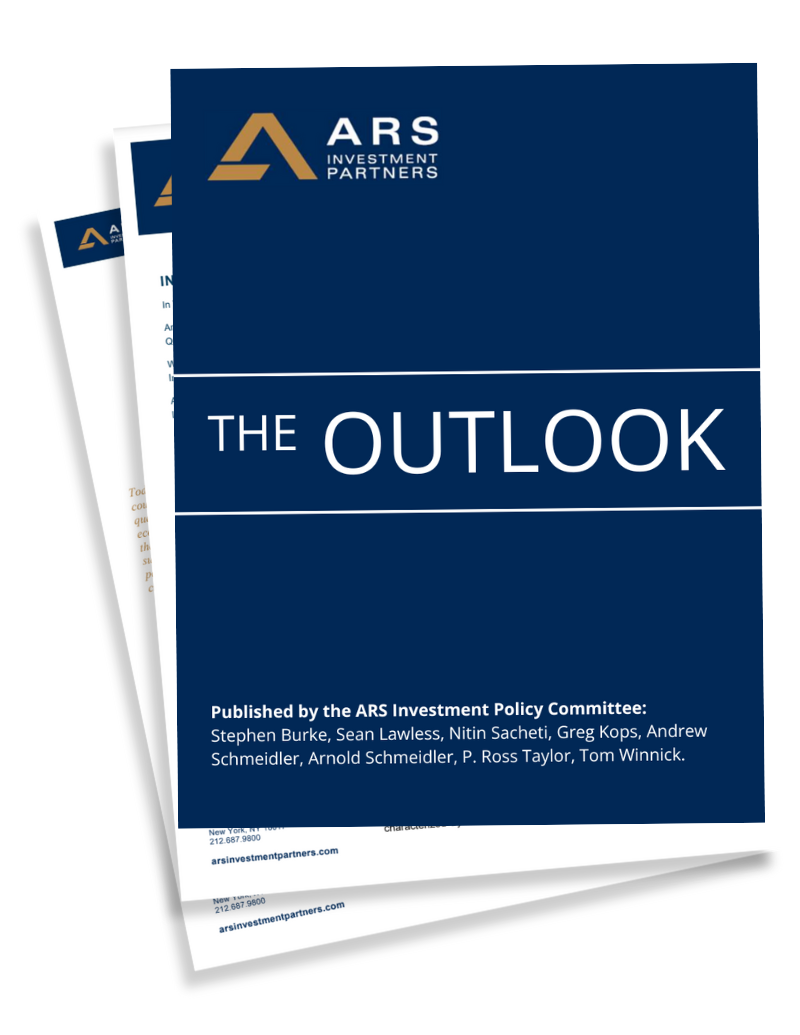Download Outlook Now
Balancing Economic Growth and
Financial Stability
As a result of the recent collapse of three regional banks, the Federal Reserve’s policy of rapid interest rate increases and quantitative tightening have been importantly affected. The recent issues in the banking system have the effect of tightening credit, slowing the economy, and therefore reducing inflation – accomplishing what the Fed has been trying to do with its rapid increases in interest rates.

Executive Summary
Recent banking troubles have introduced a new challenge for the Federal Reserve, which now must address the soundness of the financial system alongside its mandates to maximize employment and maintain price stability. On March 12th, the Fed launched the Bank Term Funding Program (BTFP) to bolster American businesses and households by providing additional funding to eligible banks, ensuring they can meet depositor needs. Additionally, the U.S. and other nations have established currency swap lines to enhance global dollar availability. These measures, though underpublicized, are crucial for maintaining liquidity and restoring financial system confidence.
Despite the challenging market environment, the real economy—focusing on goods and services—offers notable investment opportunities, especially as banks are expected to tighten lending standards, potentially dampening U.S. consumer spending. Investors should shift their focus to sectors where recent legislation is driving government and corporate spending, which is expected to sustain demand and production throughout the decade. As highlighted in our January 12th Outlook, the current economic landscape is shaped by significant shifts: cost-of-living increases, a global geopolitical realignment, and the reindustrialization of the global economy. These changes have profound implications for investment strategy, contributing to the unique economic environment that confounds many investors.
We continue to favor those companies supporting the clean energy transition, improving productivity, lowering healthcare costs, and ensuring national security. Our team has identified high-quality companies with strong balance sheets and solid dividend growth benefitting from the current economic outlook. We have been underweight in financial and consumer-oriented stocks, businesses with weak balance sheets (especially those with elevated levels of short-term debt), and those whose unsustainable demand has begun to have a negative impact on their outlooks for earnings and cash flow.
Outlook Highlights
Banking System Challenges
Recent turmoil in the banking sector has prompted the Federal Reserve to address three critical issues: maximizing employment, maintaining price stability, and ensuring the financial system’s soundness. These challenges have added complex layers to the Fed’s decision-making and future policy actions.
Legislative Impact on Economic Dynamics
Significant legislative measures such as the Inflation Reduction Act, CHIPS and Science Act, and National Defense Authorization Act are reshaping the economic landscape, driving demand and production that will influence the decade’s investment opportunities.
Shifts in Consumer and Corporate Spending
With tightening credit conditions, we anticipate a shift from traditional consumer-driven growth to increased spending by federal, state, and local governments, and corporations. This shift is supported by recent legislation which is set to reshape economic priorities and spending patterns.
Geopolitical Realignment and Economic Reindustrialization
Critical, multi-year transitions identified include the realignment of the global geopolitical order and the reindustrialization of the global economy. These transitions are reshaping investment strategies, creating unique challenges and opportunities in the current economic climate.
Our Perspective
In an environment marked by rapid changes and significant economic policy adjustments, we maintain a cautious approach towards sectors highly sensitive to economic fluctuations and remain conservative with financial and consumer-oriented stocks. Our approach aims to capitalize on the opportunities presented by legislative and geopolitical shifts, ensuring our clients are positioned to navigate these transformations effectively.
Disclaimer
The information provided in this report is for informational purposes only and is not intended as investment advice, or an offer or solicitation for the purchase or sale of any financial instrument. This report is provided on the condition that it does not form a primary basis for any investment decisions. The opinions and analyses included in this report are based on current market conditions and are subject to change. ARS Investment Partners, LLC will not be responsible for any investment decisions based on this report. Please consult with a qualified financial advisor before making any investment decisions.
Want More of The Outlook?
Sign up to receive The Outlook — our timely newsletter featuring our investment and economic thinking — and highlights from our latest market insights will be emailed directly to your inbox.









